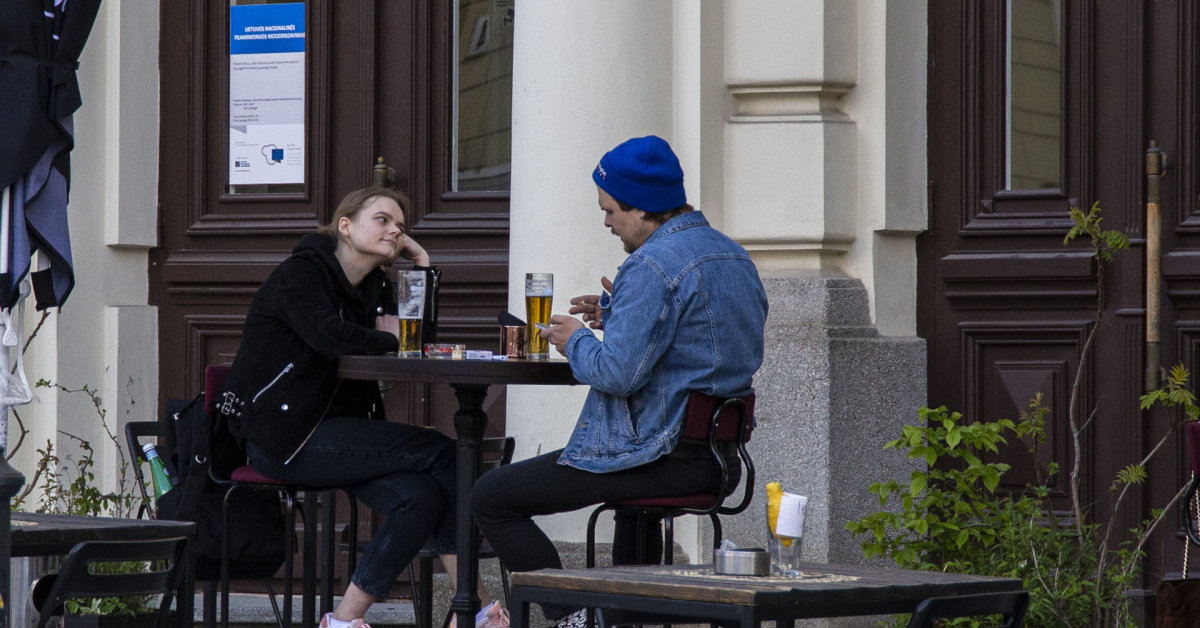
[ad_1]
The Council of Experts discussed the issue of the immunity passport on April 6.
The minutes of the meeting indicate that Vaidotas Zemlys-Balevičius, a data scientist at Euromonitor International, presented the provisions on the immunity passport and tests that day.
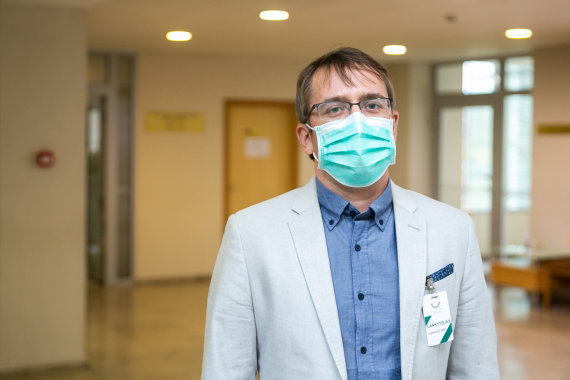
Photo by Sigismund Gedvila / 15min / Vaidotas Zemlys-Balevičius
The meeting concluded that a single population test for COVID-19 did not provide protection and did not significantly reduce the risk of infection.
“These tests can be used as an additional tool to identify and isolate patients.
On the other hand, the benefits of regular testing to stop the spread of COVID-19 are obvious, ”the experts said.
There is a low risk of disease transmission after vaccination.
They also found that after vaccination, although significantly reduced, the possibility of disease transmission remains, so close contact between unvaccinated and vaccinated people remains dangerous for unvaccinated people.
“Epidemiological safety measures (mainly social distance and mouth-to-nose masks) must be maintained in meetings between vaccinated and unvaccinated people.”
Epidemiological precautions should be maintained in meetings where there are vaccinated and unvaccinated people.
The Board of Experts formed an opinion on when a person could be considered immunized against COVID-19:
- after 1 week after the second dose of Moderna or Pfizer vaccine;
- after 4 weeks after a dose of Johnson & Johnson vaccine;
- after 4 weeks after the first dose of AstraZeneca, but the status of the immunized person is lost after 4 to 12 weeks. you will not be vaccinated with a second dose;
- 180 days after the onset of COVID-19 and after this period after a single dose of any vaccine;
- 60 days after accidental antibodies (ie, with no known confirmed disease and in the absence of the vaccine), and after this period after a single dose of any vaccine.
Testing – as an additional tool only
For those who do not meet at least one of the above criteria, periodic PCR tests at least every 7 days or another test, selecting the test frequency according to the sensitivity of the test compared to PCR (normally antigen tests must be done at least twice). one week).
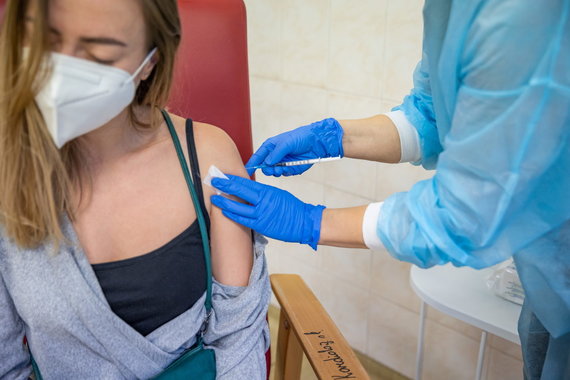
Photo by Saulius Žiūra / COVID-19 Vaccination
According to experts, the duration of immunization should be specified, leaving the possibility of changing and updating the deadlines as new data becomes available.
People who do not have an immune response (unvaccinated and sick) do not meet, according to experts, the definition of COVID-19 of a safe person; They may be exempted from some of the restrictions by getting tested regularly.
“Spot or periodic testing of unimmunized people could be used as an additional safety measure in individual cases.
For example, non-immunized people could enter the cinema at safe distances, with face and nose masks (safety must be observed by everyone, both immunized and non-immunized people if there are immunized and non-immunized people in the group). and before <24 hours. negative response to the SARS-CoV2 test, ”according to the minutes of the meeting.
The idea of a passport will be considered by the government on Wednesday.
The government promises to consider the possibility of a passport at a meeting on Wednesday. The passport concept is provided by the Ministry of Economy and Innovation.
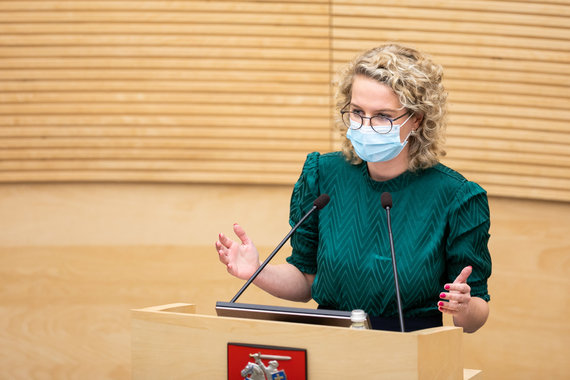
Sigismund Gedvila / 15min photo / Dawn Armonaitė
According to the Minister of Economy and Innovation Aušrinė Armonaitė, this is not the same as an immunity passport.
“Opportunity Passport is for everyone. We don’t call it an immunity passport because a person gains immunity after a vaccine or illness.
We also want to include a negative test result so that everyone can use the passport, document or code that comes to their mobile phone, ”A. Armonaitė told Knowledge Radio on Wednesday.
We also want to include a negative test result.
Such a passport would allow people to provide indoor catering services, hold larger indoor and outdoor events, as well as open sports clubs to a larger number of people and allow personal celebrations if more than two households are involved.
In the past, the idea was skeptical
The e-passport is expected to be issued to people who have been vaccinated, become ill and have immunity or have a negative COVID-19 test.
PCR or rapid antigen tests would be suitable for testing, according to the ministry. They can be one-off or done periodically, and the tests are paid for by the state.
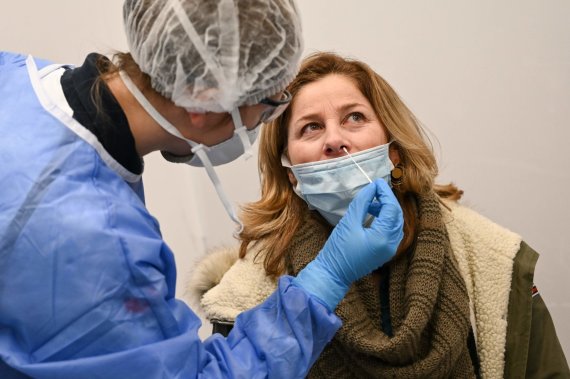
AFP / Scanpix photo / COVID-19 molecular PCR assay
The passport must be prepared by the Registry Center, which manages the electronic health system, within two to three weeks, according to the ministry. Subsequently, it will be integrated into the certificate of immunity provided for by the European Union.
In the past, those responsible were skeptical of the possibility of applying an immunity passport at the national level, which could work when vaccines are available to the general population, that is, mass vaccination will begin.
All cultural, sporting events, celebrations, fairs, festivals, restaurants, cafes (except take-out) and other catering establishments, entertainment venues, casinos and gaming establishments, as well as sports clubs, lounges, swimming pools, theaters and cinemas are currently prohibited. .the clubs.
Supermarkets are not open to most stores or only act as collection points. Hairdressers, beauty salons, museums can work with restrictions.
[ad_2]